About the Editors
Editor-in-Chief
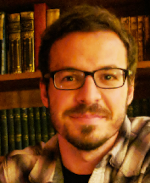 Laurent Hébert-Dufresne, PhD
Laurent Hébert-Dufresne, PhD
Complex Systems Center
University of Vermont
Burlington, VT, USA
Dr. Hébert-Dufresne obtained his PhD in physics in from Université Laval in Québec, Canada. He then branched out in different avenues of complex systems modeling, first as a James S. McDonnell Foundation Fellow at the Santa Fe Institute and later as a researcher at the Institute for Disease Modeling. Now at the Vermont Complex Systems Center, he leads the Laboratory for Structure and Dynamics whose research focuses on the interaction and coevolution of structure and dynamics. Recent examples include social networks interacting with the spread of diseases and ideas, the shape of forests interacting with forest fires, cultural adaptations emerging to answer societal challenges, and the structure of metabolic networks influencing interactions in microbial communities.
Managing Editor
 Jialiang Cai, PhD
Jialiang Cai, PhD
Jialiang received a B.Sc. in Ecology from East China Normal University (China) and a M.Sc. in Environmental Sciences from Peking University (China). He earned his Ph.D. in Hydrogeology from Freie Universität Berlin (Germany). Jialiang continued to work first as a Postdoctoral Researcher and later as a PI (Visiting Research Fellow) for 7 years at Aalto University (Finland). His research focused on understanding the exposure and resilience of society to nature resources risk as well as the synergies and tradeoffs between economic competitiveness, social welfare, and environmental sustainability for accessing transformative pathways towards achieving the 2030 Agenda in a warmer world. Prior to joining the npj series in May 2023, Jialiang served as a Senior Editorial Development Specialist at earth science, astronomy and space sciences, physics, and chemistry journals at Frontiers. He is based in the Shanghai office.
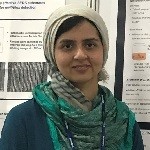 Basma Qazi-Chaudhry, PhD
Basma Qazi-Chaudhry, PhD
Basma joined the npjs in August 2021 after completion of her PhD at King’s College London. Her doctoral research was at the interface of chemistry, physics and bio imaging developing nanoparticle probes as biological imaging contrast agents for vibrational micro-spectroscopy. Prior to that, she received her master’s degree in micro and nanotechnologies for integrated systems and her bachelor’s in Electrical and Electronics Engineering from EPFL, Switzerland. Basma is based in the London office and is currently on parental leave.
Associate Editors
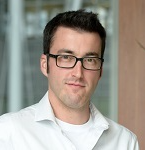 Antoine Allard, PhD
Antoine Allard, PhD
Université Laval
Québec, QC, Canada
Antoine is an Associate Professor of Physics at Université Laval (Québec, Canada) where he holds the Sentinelle Nord Research Chair on Applications and Theory of Network Analysis and co-leads the Dynamica Research Lab on the structure and the dynamics of complex systems. His research combines statistical mechanics, graph theory, nonlinear dynamics, and geometry to develop mathematical models of complex networks and to study the structure/function relationship specific to complex systems. His work finds applications in neuroscience, epidemiology, computer science, and ecology.
 Joshua Garland, PhD
Joshua Garland, PhD
Arizona State University
Tempe, AZ, USA
Joshua received his Ph.D. in Computer Science and M.S. in Applied Mathematics from the University of Colorado and a dual B.S. in Mathematics and Computer Science from Colorado Mesa University. His areas of interest focus on a wide variety of complex systems and applications, such as the climate, ecology, politics, dynamical systems, and many more. However, as faculty at the Center on Narrative, Disinformation and Strategic Influence at ASU, Joshua primarily focuses on one system-online human social dynamics. In this capacity, he is combining social theory, machine learning, time series analysis, and natural language processing to understand the fascinating intersections of AI, global politics, social media, narratives, disinformation, and strategic influence.
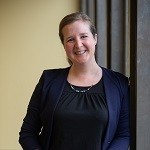
Elizabeth A. Hobson, PhD
University of Cincinnati
Ohio, USA
Research in the Hobson Lab focuses on social information: what do animals know about their social worlds, how do they come to know it, and what do they do with that information? To address these questions, we integrate aspects of ecology and evolution to determine how the combination of sociality and cognition affect the emergence of group social structures from a combination of individual-level social actions, cognitive abilities, and decisions about future interactions. Detecting the use of social information provides new insight into the connections between social decisions and cognitive processing, how they can be affected by ecological dynamics, and how they can lead to the evolution of complex sociality.
 Luis Zaman, PhD
Luis Zaman, PhD
University of Michigan
Ann Arbor, MI, USA
Luis is an Assistant Professor with the Center for the Study of Complex Systems, and the Department of Ecology and Evolutionary Biology at the University of Michigan. His research takes a deeply interdisciplinary approach to understanding why evolution appears so relentless and creative. Luis's lab uses experimental evolution of two very different model systems: 1) populations of self-replicating computer programs or digital organisms, and 2) microbial communities consisting of bacteria and bacteriophage (viruses that infect bacteria). The common thread running through all his research interests is understanding the evolution of diversity, complexity, and evolvability, and how the interplay between ecology and (co)evolution drives these phenomena.
Advisory Editor
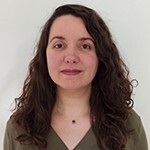 Efi Rousi, PhD
Efi Rousi, PhD
Efi is a climate scientist and is an in-house editor at Nature Communications, where she handles manuscripts related to physical climatology, oceanography, and climate impacts. She obtained her PhD in Atmospheric Sciences from the Aristotle University of Thessaloniki, Greece. She then worked as a postdoctoral researcher in the Free University of Berlin and the Potsdam Institute for Climate Impact Research. Her research focused on atmospheric circulation, climate change, and climate extremes. Efi is based in the Berlin office.
Editorial Board Members
Josh Bongard, PhD, University of Vermont, VT, USA
Jana Lasser, PhD, University of Graz and Complexity Science Hub, Graz and Vienna, Austria
Elizabeth Bradley, PhD, University of Colorado Boulder, CO, USA
Mirta Galesic, PhD, Santa Fe Institute, NM, USA
Markus Luczak-Roesch, PhD, Victoria University of Wellington, Wellington, New Zealand
Deok-Sun Lee, PhD, Korea Institute for Advanced Study, Seoul, Republic of Korea
Cristopher Moore, PhD, Santa Fe Institute, NM, USA
Daniela Paolotti, PhD, ISI Foundation, Turin, Italy
Orit Peleg, PhD, University of Colorado Boulder, CO, USA
Hiroki Sayama, PhD, Binghamton University, NY, USA
Interested in joining the journal team?
If you are interested in joining the journal as an Editorial Board Member or Associate Editor, please complete this Google form. Associate Editors are part of the editorial team that handle manuscripts, while Editorial Board Members are regular reviewers and are consulted for ad hoc advice. We will contact you if your expertise meets the needs of the journal.
Nature Portfolio journals are committed to promoting practices that support diversity, equity and inclusion in science communication and publishing, and we strongly encourage gender, race, ethnic, geographic, career stage and other diversity in our journal teams. Our in-house staff will use your information only for the purposes of identifying new editorial team or board members. Please contact the journal by email if you would like to remove your information from these records.
Please note that we are not able to respond to all applicants.
